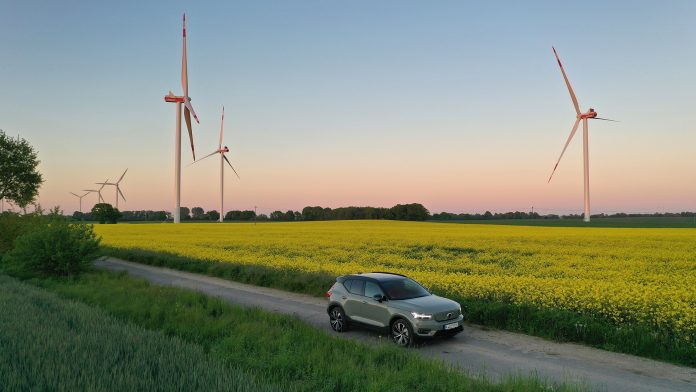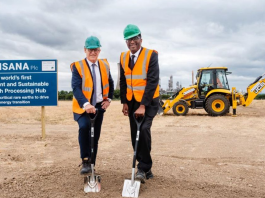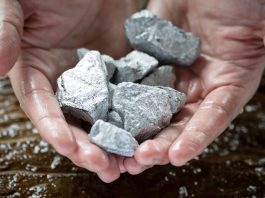The Rare Earth Industry Association (REIA) has recently joined two European innovation projects as part of its mission to help strengthen the global rare earths supply chain.
The Global Rare Earth Industry Association (REIA) is an international organisation representing the global rare earth elements (REE) industry. As a non-profit organisation bringing together the global REE industry and its partners, REIA’s mission is to communicate the value of REEs and to serve, promote, and advance the sustainable development of a global rare earth value chain.
To support its efforts to strengthen the rare earth supply chain, REIA has recently joined two European innovation projects.
REEsilience rare earth project
The first project is the REEsilience project, which aims to build a more resilient and sustainable supply chain for rare earth magnetic materials and products in Europe. It is set to create new market opportunities for critical raw materials sustainably produced in the continent. In more detail, the REEsilience project partners will categorise rare earths by geographic locations, quantities, chemical composition, ethical and sustainable indicators, ramp-up scenarios, and pricing, considering all value streams from virgin to secondary material to achieve the goal. The project will also build a production system that ensures a more resilient and sustainable supply chain for RE materials and magnets for the e-mobility, renewable energy, and other strategic sectors in Europe with fewer dependencies on non-European economies.
Moreover, a newly developed software tool will determine optimum mixing ratios to consistently ensure high product quality with maximum secondary materials for high-tech applications. Combined with new and improved technologies for alloy production and powder preparation, especially of secondary materials, the yield and stability of processes will be further enhanced. That allows further augmentation of the proportion of secondary materials in RE magnet production while reducing waste, environmental damage, and energy consumption linked with virgin material acquisition.
The project is funded by the European Union’s research and innovation programme, Horizon Europe, and is co-ordinated by the Institute for Precious Metals and Technology (STI) of Pforzheim University, Germany, and will last until June 2026. The consortium comprises 16 project partners and two associated partners from ten European countries (Austria, Belgium, France, Germany, Netherlands, Poland, Slovenia, Spain, Sweden, and the UK).
ONTO-DESIDE
The other project REIA is now a part of is the ONTOlogy-based DEcentralized Sharing of Industry Data for the European circular economy (ONTO-DESIDE). Circular economy aims at reducing value loss and avoiding waste, by circulating materials or product parts before they become waste. Today, lack of support for sharing data in a secure, quality assured, and automated way is one of the main obstacles that industry actors point to when creating new circular value networks. Together with using different terminologies and not having explicit definitions of the concepts that appear in data, this makes it very difficult to create new ecosystems of actors in Europe today. This project will address the core challenges of making decentralised data and information understandable and usable for humans as well as machines. The project will leverage open standards for semantic data interoperability in establishing a shared vocabulary (ontology network) for data documentation, as well as a decentralised digital platform that enables collaboration in a secure and privacy-preserving manner.
The project addresses a number of open research problems, including the development of ontologies that need to model a wide range of different materials and products, not only providing vertical interoperability but also horizontal interoperability, for cross-industry value networks. As well as transdisciplinary research on methods to find, analyse and assess new circular value chain configurations opened up by considering resource, information, value and energy flows as an integral part of the same complex system. Three industry use cases, from radically different industry domains, act as drivers for the research and development activities, as well as test beds and demonstrators for the cross-industry applicability of the results. The developed solutions will allow for automation of planning, management, and execution of circular value networks, at a European scale, and beyond. The project thereby supports acceleration of the digital and green transitions, automating the discovery and formation of new collaborations in the circular economy.
Cementing REIA’s mission
The projects are a major step forward for the efforts of REIA. Dr Badrinath Veluri, President of REIA, commented: “We are an association engaging with global and regional projects, so being part of REEsilience and Onto-Deside was a no brainer as these two projects perfectly fit into the scope of our mission. They can only bring added value to our industry. The development of a more resilient and sustainable value chain is an absolute priority. So is being able to share data in a secure and automated way in order to create circular value networks.”
Rare Earth Industry Association
florence.gomez@global-reia.org
www.global-reia.org
https://www.linkedin.com/company/gloreia/?originalSubdomain=be
https://twitter.com/REIA_global
Please note, this article will also appear in the eleventh edition of our quarterly publication.









